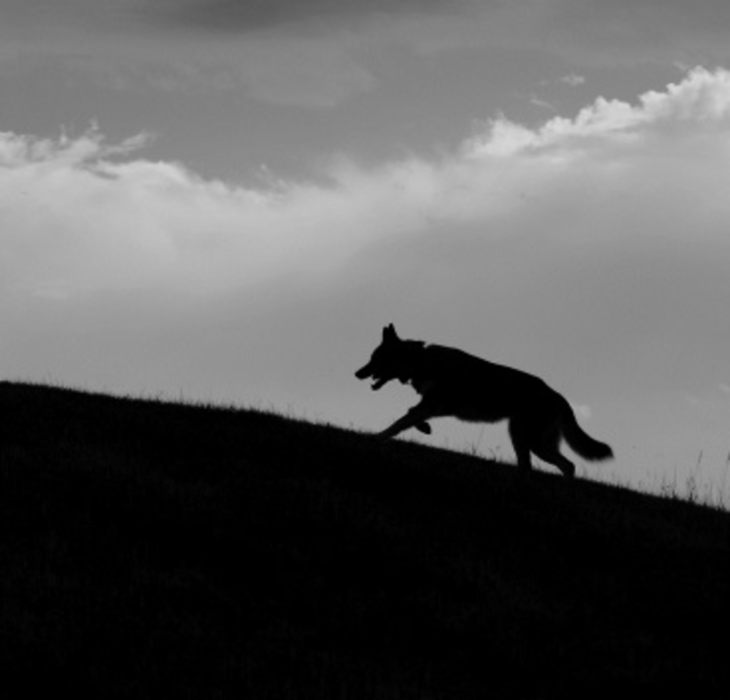I recently read Twyman Towery’s fascinating book The Wisdom of Wolves: Leadership Lessons from Nature and two things struck me about this most interesting of animals. First, despite the fact that they are fast, strong, and ferocious, they don’t just hurl themselves at their prey the first opportunity they get and try and overcome them by sheer force; rather they apply an extraordinary level of patience in observing, following, and planning how they’re going to execute a successful attack on a herd of prey.
Apparently they will often track a herd of, say, Caribou, for days on end and identify their target between them, and once identified will mount a series of lightening attacks by a sole wolf on their target designed not bring them down, but rather to weaken them a little more each day until the pack leader decides the time is right to finish the job. This is a remarkable level of patience given that the wolves may actually be starving at this stage and yet they have the fortitude to wait it out until the time is right.
The second fascinating trait I learned about was their insatiable curiosity. Researchers who have studied wolves in the wild have reported many occasions where wolf packs will track and study them in return, not threatening or protecting their territory, but rather observing from a distance and following the researcher unseen to their next stopping off point. But it’s not just researchers they are curious about; rather it’s the whole terrain they live in. More so than most animals they explore and learn about every inch of the terrain, which in turn gives them plenty of advantage during hunting. In other words, everything they do is with a purpose.
The patience and curiosity of the wolf got me thinking about how the changing environment of marketing and selling is requiring marketers and salespeople to learn a level of patience that previously may not have been what was celebrated or encouraged by management. For example, we’ve always liked the idea of the salesperson as the hunter and indeed have often divided sales teams between “hunters” and “farmers.” Our definition of the hunter has been the salesperson that quickly identifies a target and then through a combination of skill and force of personality can land the deal fast before moving onto their next target. Every sales organization has these types of sellers and they’ve been big favorites of management due to their track record of results—even though their pursuit of deals may often leave an implementation nightmare its wake.
But consider for a moment the new reality of marketing and sales, and the fact that the buyer is often 50 to 65% of their way through their buying process before they ever engage with a seller directly. Consider also that the buyer is making their buying decisions based in part on information that they can access online from company and third-party websites, plus they’re getting insights on how good a company is from peer reviews and from their online professional network. How does this affect the classic hunter salesperson and the marketers who work with them? Well, there’s a good reason why wolves don’t charge into a herd the minute they come upon them; it’s called a swift hind hoof to the head, which is often game over for the wolf. In similar terms the salesperson who charges in and tries to make immediate contact with buyers who are executing a self-discovery process in the early part of their buying process will equally end in a metaphorical hind hoof coming their way.
In this era of social selling marketers and salespeople need the same level of patience the wolf exhibits by following and researching their target buyers online and understanding from a distance what is of importance to them. Then, once they have a good sense of that, engaging with the buyer in limited ways offering valuable insights without looking for anything in return immediately. Finally, and only when the time is right, should the marketer or sales person take the engagement to the next level, especially when it involves direct interaction. This deliberate, patient, and planned approach is something that management must encourage their teams to adopt.
To many traditional sales or marketing managers, this may look like we’re trying to tame the hunter, but far from it; rather we’re taking lessons from the greatest hunter of them all: the wolf.
| John Golden is president and CEO of sales performance improvement organization Huthwaite where he is responsible for the company’s global financial and operational performance and long-term strategy for success. |







